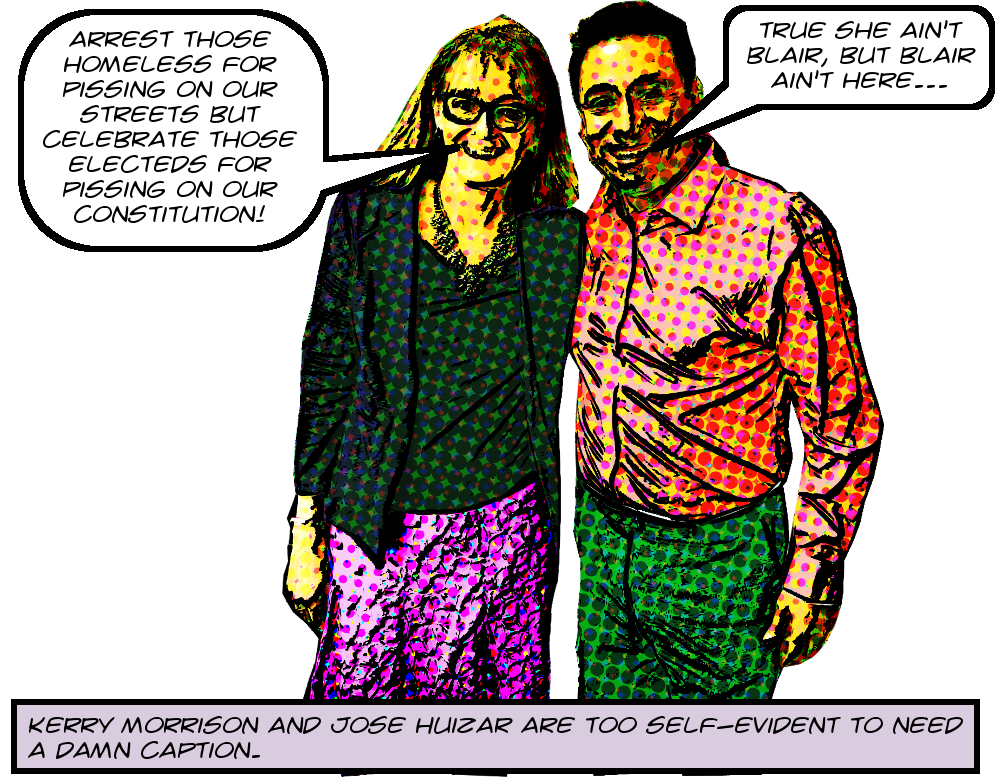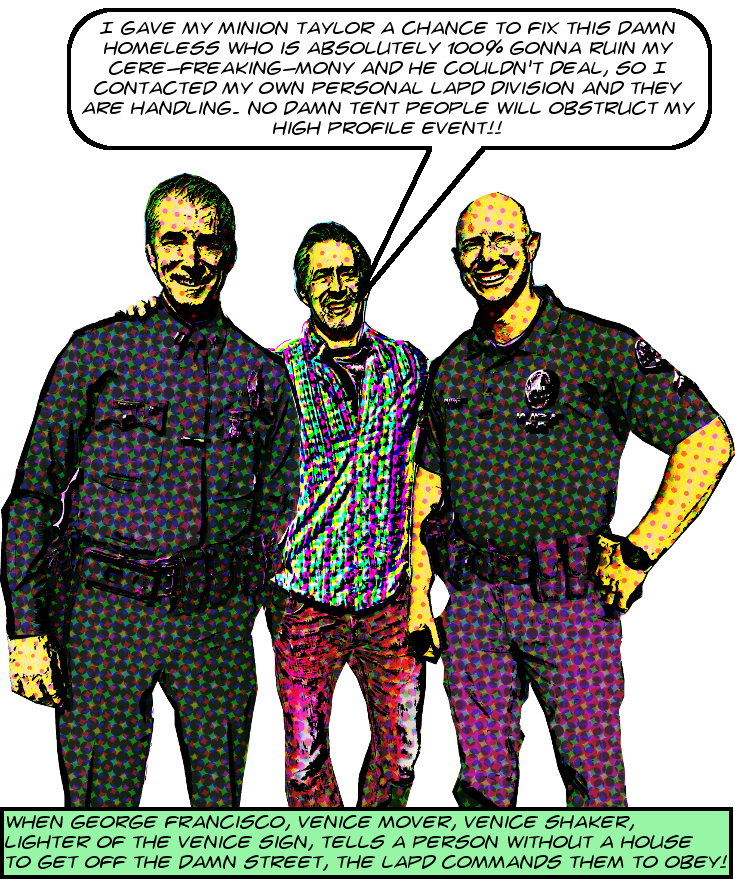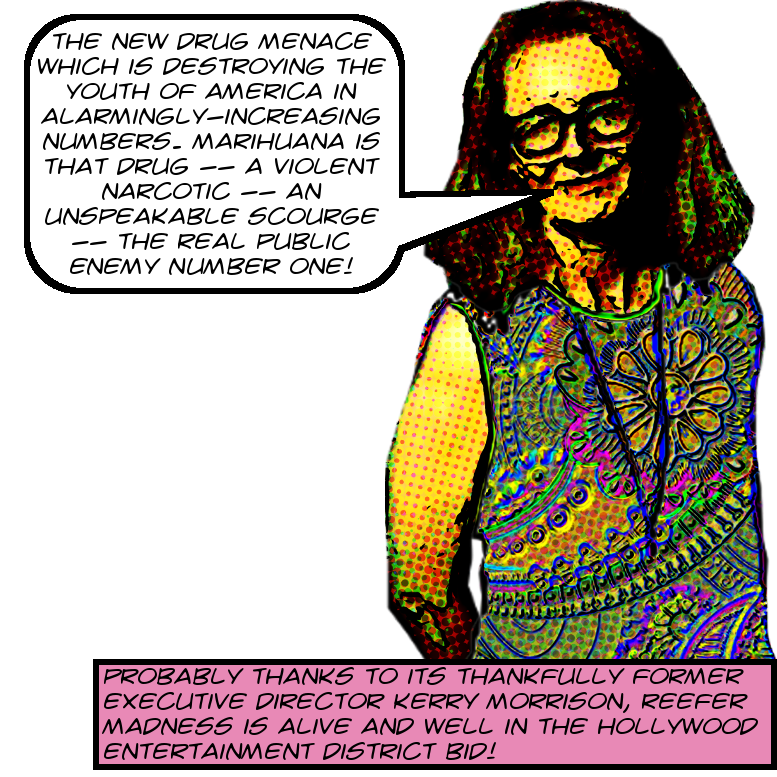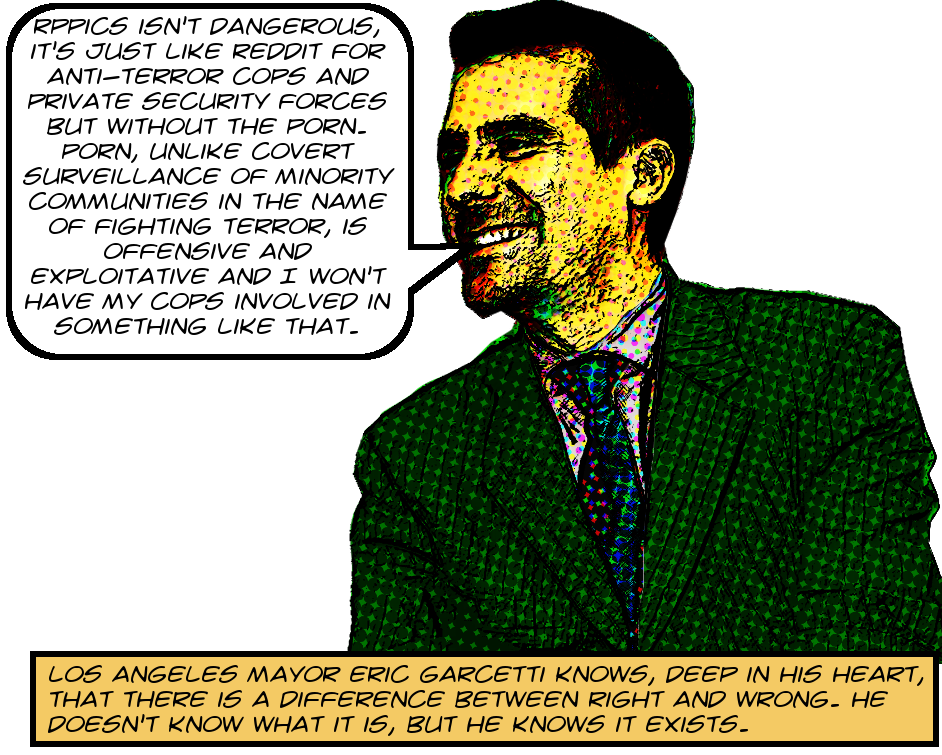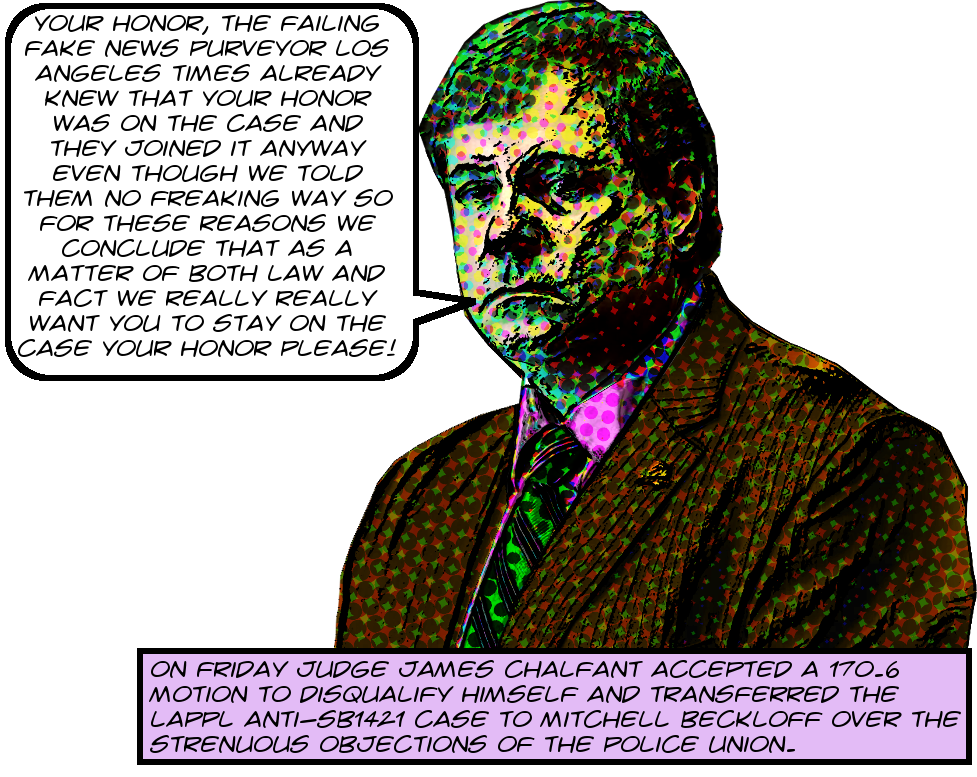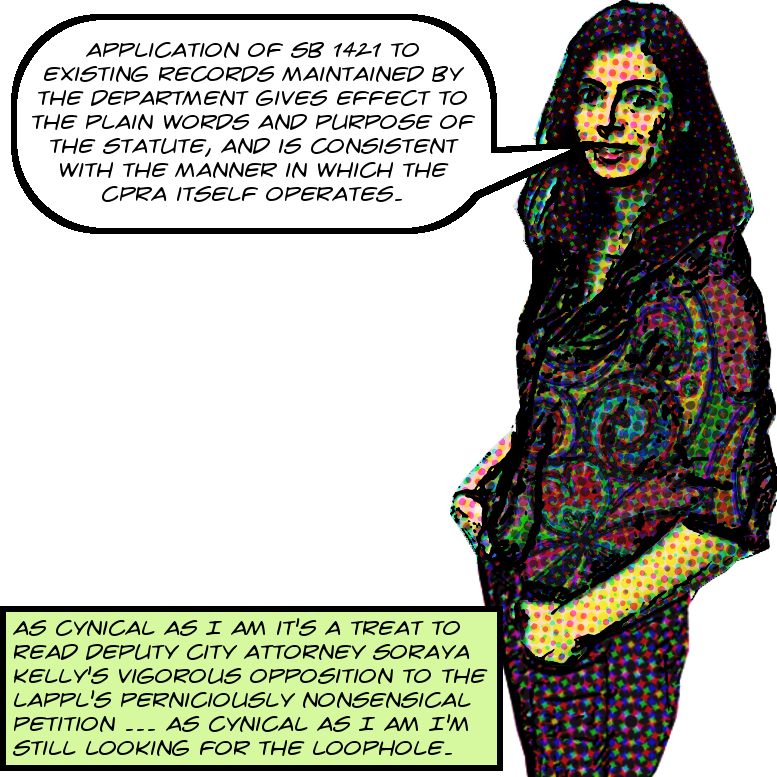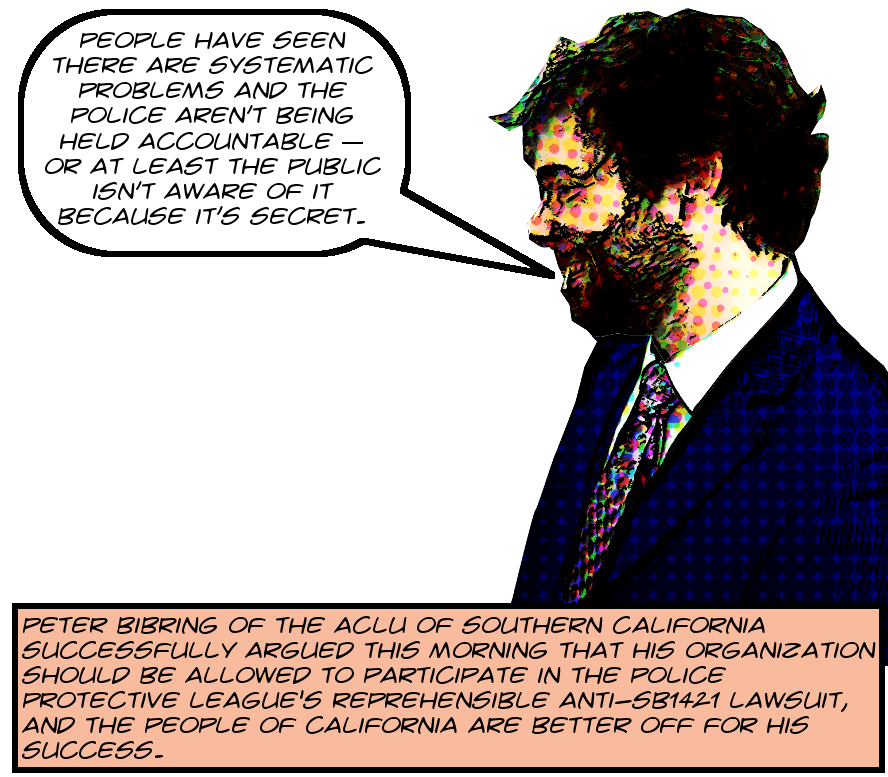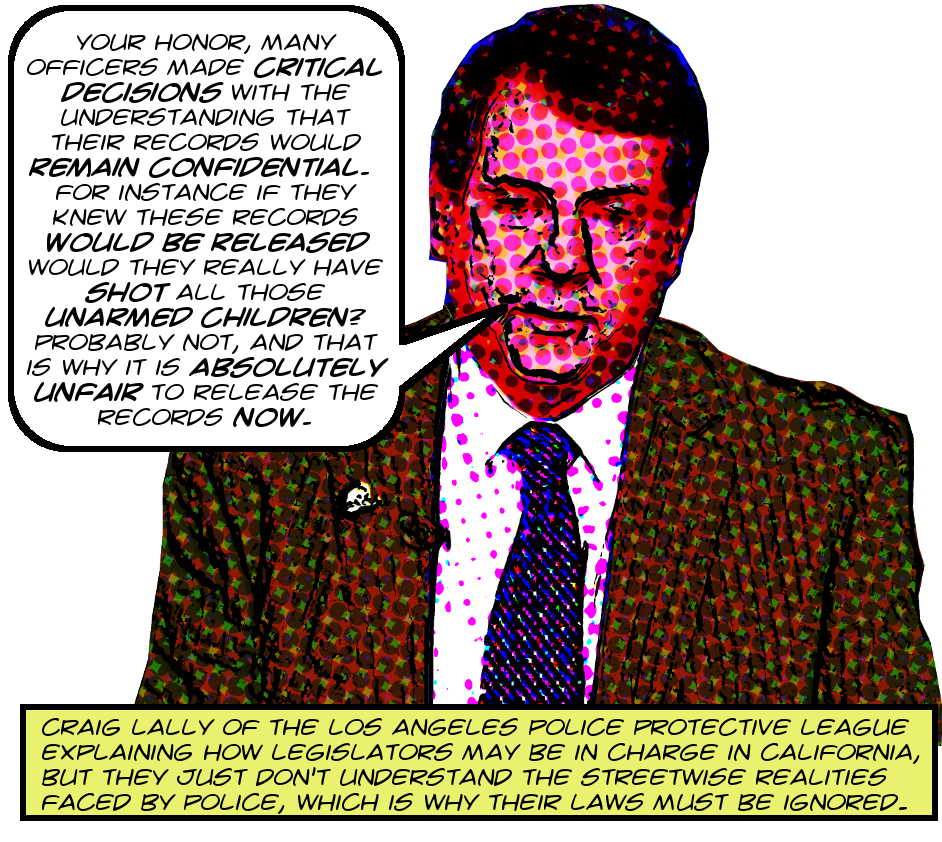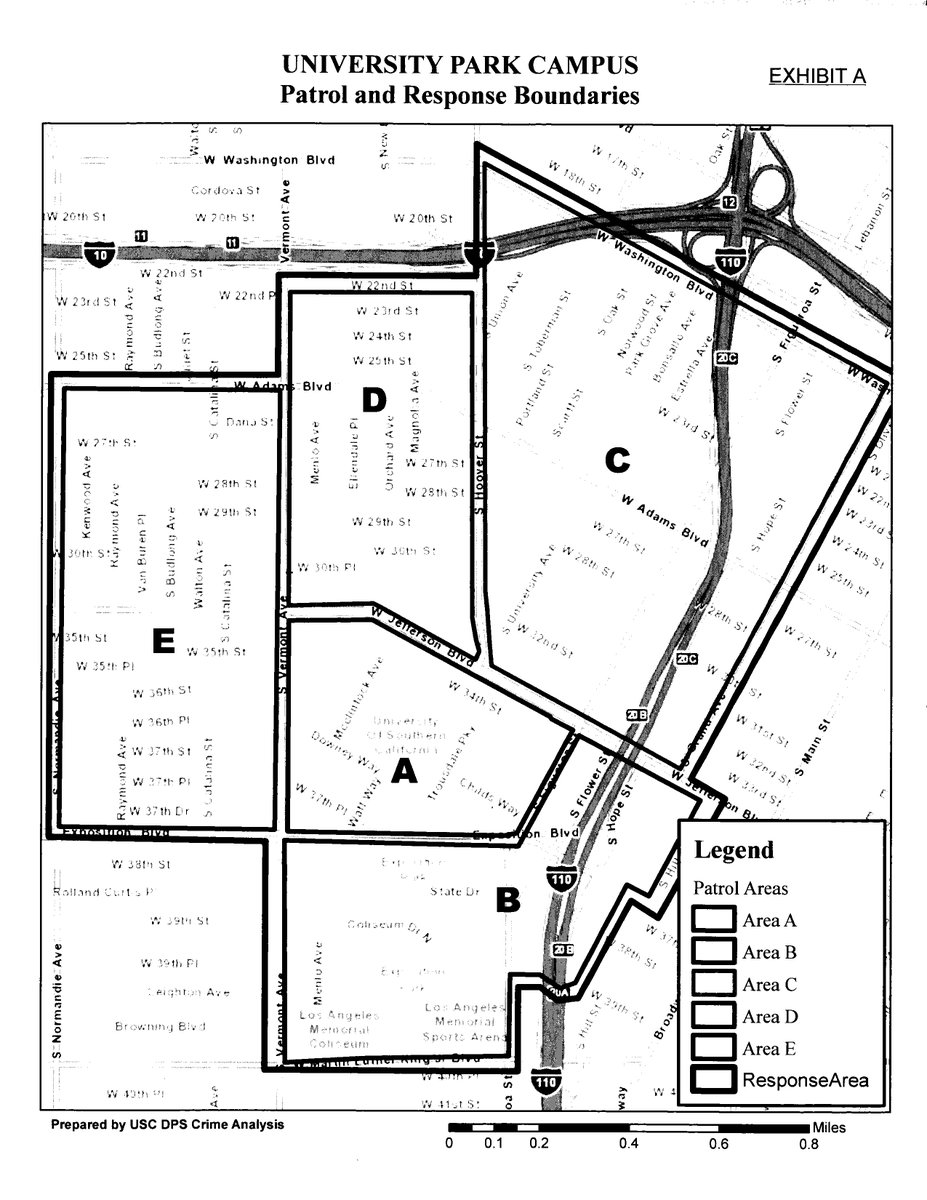 So it turns out that security guards at private universities can actually be peace officers under California law if certain conditions are satisfied. This is authorized by the Penal Code at §830.75, which lists the fairly minimal conditions. They include a requirement that “[t]he institution of higher education and the appropriate local law enforcement agency have entered into a memorandum of understanding.” Once the conditions are met, the law allows the security guards to act as police officers on public property within a mile of their campus.
So it turns out that security guards at private universities can actually be peace officers under California law if certain conditions are satisfied. This is authorized by the Penal Code at §830.75, which lists the fairly minimal conditions. They include a requirement that “[t]he institution of higher education and the appropriate local law enforcement agency have entered into a memorandum of understanding.” Once the conditions are met, the law allows the security guards to act as police officers on public property within a mile of their campus.
And the University of Southern California has taken full advantage of this opportunity, entering into the appropriate MOU with the Los Angeles Police Department so that its security guards, collectively known as the Department of Public Safety, have the arrest power and are allowed to exercise it within the boundaries of the map shown above. I obtained a copy of this MOU from LAPD under the CPRA, and it’s well worth reading.
If you’re paying attention at all you’ll have heard that this situation, with USC policing a vast off-campus area in neighborhoods whose residents are mostly poor, mostly black or brown, is intolerably abusive. Sahra Sulaiman, for one, has been writing about it for years on Streetsblog. See e.g. this 2013 overview and this more recent description of yet another appalling incident.
When the LAPD is involved in activities like this, well, it’s not so easy to stop them, but it is at least possible to use the Public Records Act to try understand what they’re up to. This is not so clearly possible with USC, since they’re a private school and not prima facie subject to the CPRA.1 But the MOU does provide for some transparency about USC operations.
In particular take a look at Article 5, which requires all kinds of reporting about police activities by USC, all of it to be submitted to LAPD.2 USC DPS is required to submit reports of significant incidents, daily reports of calls, weekly crime statistics, monthly reports of all activities pertaining to the exercise of the powers granted by the MOU, and other stuff besides.
So naturally I asked LAPD for copies of all of these reports from 2018 and 2019 under the CPRA.3 And imagine my surprise when the LAPD told me this afternoon that they didn’t have any records. They even said that they asked Southwest Division to look for them, which was the right thing to do as they’re the designated recipients under the MOU.
So if LAPD Discovery is telling the truth and no one actually has copies of all these reports that USC is supposed to submit, then USC is in violation of the MOU and they certainly ought to stop patrolling off-campus immediately and have all the powers granted to them under its terms suspended until they come back into compliance.
This isn’t just some kind of technicality, either. If USC DPS is going to operate on public property, detain and arrest citizens of Los Angeles who aren’t remotely interacting with USC property or employees, and so on, then we have a right to keep track of what exactly they’re up to. If they actually haven’t been submitting these reports, or if LAPD isn’t retaining them or is hiding them, then it’s impossible for us to understand USC’s operations on our streets, which is unacceptable.
On the other hand, obviously, it’s possible that LAPD is either lying or mistaken, either of which would be completely not at all surprising to anyone who’s dealt with them before. So I asked Southwest Division to put me in touch with whoever is their USC liason, and I asked USC senior vice something or other Todd Dickey, who signed the most recent amendment to the MOU, to please let me know what’s going on. If and when I hear back from them well, you’ll read about it here. Meanwhile, turn the page for all the transcriptions.
Continue reading It Appears That The University Of Southern California Is In Violation Of Its Memorandum Of Understanding With LAPD — USC Police Are Required To Submit Regular Reports Describing Their Activities And Giving Various Statistics — According To LAPD Discovery In Response To A CPRA Request There Are No Reports — Given The Vast Off-Campus Area That USC Cops Cover It Is Disconcerting That There Is No Way To Know What They’re Doing — And It Is A Massive Dereliction Of LAPD’s Duty To The People Of Los Angeles That They Evidently Are Allowing USC To Shirk Its Legal Reporting Duties

